Research
Infographic
Recognizing Faculty with Disabilities: Data and Considerations from the Faculty Job Satisfaction Survey
Drawing upon Faculty Job Satisfaction Survey data from 2019 and 2020, this piece examines meaningful differences in perception of the academic workplace between faculty with visible disabilities, invisible disabilities, and no reported disabilities.
Case Study
Supporting the Next Generation of Faculty at Georgia State University
In this partner spotlight, Georgia State University shares how the institution applied its data-driven approach to student success to the faculty experience through the administration and rollout of the Faculty Job Satisfaction Survey.
Webinar
Success After Tenure: Lessons in Engaging Mid-Career Faculty
Based on the 2018 book, Success After Tenure: Supporting Mid-Career Faculty (Stylus), this webinar highlights the impetus behind compiling the volume, as well as the successful practices put in place by COACHE partners at Rochester Institute of Technology.
Browse Resources By Topic
Gen X Meets Theory X: What New Scholars Want
Citation:

Abstract:
“If they can’t understand that I want a kick-ass career and a kick-ass life, then I don’t want to work here,” sums up how many Generation X’ers (born between 1965 and 1980) view their workplace, according to Lancaster and Stillman. As a group, Gen X’ers are willing to work hard but want to decide when, where, and how. As this generation enters the professoriate in large numbers, some institutions may be wondering what hit them.
This study measured the importance of 19 job factors to recent graduates of doctoral degree programs. The primary considerations of recent graduates when choosing a job were: finding a situation in which they could do meaningful work and strike a balance between teaching and research; quality of living conditions, e.g., affordability of housing, commute, good K-12 schools, community feeling and safety, and job opportunities for spouse or partner; and balance between work and home life.
Toward a Greater Understanding of the Tenure Track for Minorities
Citation:

Abstract:
To understand life on the tenure track, the Collaborative on Academic Careers in Higher Education (COACHE) conducts an annual Faculty Job Satisfaction Survey. Through surveys and in focus groups and interviews, hundreds of tenure-track faculty members share what affects their workplace satisfaction and, ultimately, their success. The clarity and reasonableness of the criteria and standards for achieving tenure, institutional and support for teaching and research, the effectiveness of workplace policies and practices, departmental climate and collegiality, and work/life balance are among the issues addressed. In 2009, for the first time, COACHE collected enough faculty respondents who self-identified in each racial and ethnic category, in proportions similar to their representation in the faculty population nationally, to look at each group separately. An examination of the different groups' experiences of faculty life is important to the welfare of students. This article presents a series of commonly asked questions about the COACHE research.
- «
- 5 of 5
Benchmark Best Practices: Department Engagement, Quality, and Collegiality
Citation:
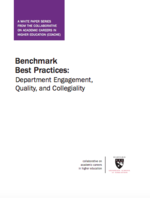
Abstract:
The COACHE surveys of college faculty produce data that are both salient to full-time college faculty and actionable by academic leaders. The survey items are aggregated into 20 benchmarks representing faculty satisfaction. This white paper discusses departmental engagement, quality, and collegiality.
Departmental quality is a function of the intellectual vitality of faculty, the scholarship that is produced, the effectiveness of teaching, how well the department recruits and retains excellent faculty, and whether and how poor faculty performance is handled. While many factors comprise faculty members’ sense of departmental collegiality, COACHE has discovered that faculty are especially cognizant of their “fit” among their colleagues, their personal interactions with colleagues, whether their colleagues “pitch in” when needed, and colleague support for work/life balance. There is no substitute for a collegial department when it comes to faculty satisfaction, and campus leaders—both faculty and administrators—can create opportunities for better informal engagement.
Benchmark Best Practices: Appreciation & Recognition
Citation:
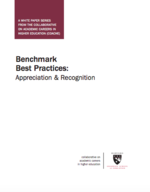
Abstract:
The COACHE surveys of college faculty produce data that are both salient to full-time college faculty and actionable by academic leaders. The survey items are aggregated into 20 benchmarks representing faculty satisfaction. This white paper examines appreciation and recognition for faculty teaching efforts, student advising, scholarly/creative work, service contributions, and outreach.
Focus group research conducted by COACHE showed that while many tenured faculty members feel valued by undergraduate and graduate students, they do not receive much recognition from other faculty and upper-level administrators. The degree to which appreciation/recognition themes appeared in our 2010 study of tenured faculty far surpassed their appearance in our pre-tenure faculty research. In our recent study, tenured faculty felt that extramural service that increases the reputation of their colleges, while expected of them, is not recognized and goes unrewarded. This gap between expectations and appreciation discouraged many faculty from serving their institutions in this way.
Perspectives on Midcareer Faculty and Advice for Supporting Them
Citation:
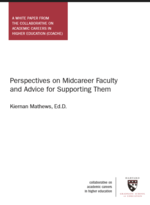
Abstract:
This 8-page white paper was produced for an invited presentation at the Association of Public Land-grant Universities' (APLU) Council on Academic Affairs Summer Meeting in Santa Fe, New Mexico. The paper examines the experiences of midcareer faculty, who face an increased teaching load, greater expectations for service and advising, a more competitive market for grants, and the disappearance of mentoring programs that supported them as early-career faculty. The toll of these obligations is heavier on women and faculty of color. Institutions can address the challenges midcareer faculty face by designing orientations that cover the entire career, implementing career re-visioning programs, providing opportunities for re-engagement, and mentoring associate professors.New Challenges, New Priorities: The Experience of Generation X Faculty
Citation:
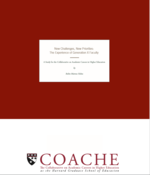
Abstract:
This study explores how Generation X (born 1964-1980) faculty are approaching their jobs, long-term careers, and work-life balance, and examines if and how the generational “clashes” reportedly arising in the workforce are being manifested in the academic environment. The study was designed to complement and build upon the coache Tenure-Track Faculty Job Satisfaction Survey by using qualitative interviews to explore many of the same themes in greater depth with a limited number of participants, and provide insights into how those themes play out in the day-to-day lives of individual faculty members. While the survey provides a snapshot of how tenure-track faculty are feeling about their current job situation, this study examines the broader context of faculty members’ long-term careers, and the interplay between their work and non-work lives.
A New Generation of Faculty: Similar Core Values in a Different World
Citation:

Abstract:
While tenure-track faculty may want the same things as their predecessors, younger Boomers (born 1956-1963) and Gen X faculty live and work in a very different world than older Boomers (born 1946-1955) and Traditionalists (born before 1946). Because of this, Gen Xers, in particular, have been vocal about wanting increased flexibility, greater integration of their work and home lives, more transparency of tenure and promotion processes, a more welcoming, diverse, and supportive workplace/department, and more frequent and helpful feedback about progress.
Stress in senior faculty careers
Citation:
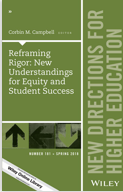
Abstract:
According to the Carnegie Foundation, faculty job satisfaction has declined drastically over the past few decades at institutions of higher education (Shuster and Finkelstein, 2006). Researchers have also found that faculty satisfaction is critical to the vitality of colleges and universities (Clark, Corcoran, and Lewis, 1986; Farrell, 1983). Senior faculty members, defined here as those who have tenure, can significantly impact institutional vitality because they make up 50 percent of the professoriate (U.S. Department of Education, 2008). In addition, a recent study suggests that one disengaged senior faculty member can significantly damage an entire academic unit (Huston, Norman, and Ambrose, 2007). What factors affect senior faculty retention and attrition at institutions of higher education? I begin the following chapter by analyzing the most common factors presented in the literature. I then argue that institutions must consider the particular needs of their senior faculty members and be willing to make change(s) to retain them.
Gender Differences in Faculty Member Job Satisfaction: Equity Forestalled?
Citation:

Abstract:
Guided by Hagedorn’s (2000) theory of faculty job satisfaction, mindful of social and organizational structures of higher education, and acknowledging recent changes in the academic labor market, this study examines satisfaction for approximately 30,000 tenured and tenure-track faculty members in 100 US colleges and universities. Findings revealed similarity between female and male faculty members in some aspects of work satisfaction, but difference in other areas in which women reported lower satisfaction. Findings also revealed that perceptions of department fit, recognition, work role balance, and mentoring are more important to women faculty’s satisfaction than male peers. These findings have implications for policy and practice.
To stay or not to stay: retention of Asian international faculty in STEM fields
Citation:
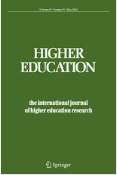
Abstract:
The present study identifies characteristics of individuals and work settings that influence Asian international faculty members’ intentions to continue their employment in US research universities. Given the demand for researchers in science, technology, engineering and mathematics fields (STEM), the higher rate of turnover among untenured faculty, and the replacement costs associated with turnover in STEM, the sample is limited to assistant professors employed in these areas. Multinomial regression analyses identified variables that “pull” and “push” uncertain faculty toward intentions to stay and leave their current institutions. The results suggest that faculty who are more satisfied with time available for research and those who express stronger organizational commitment are more likely to say they will stay. Those dissatisfied with the fairness of work evaluations and those who believe tenure decisions are not merit-based are more likely to say they will leave.
Is the Tenure Process Fair? What Faculty Think
Citation:
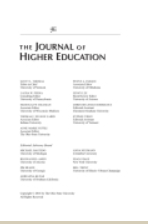
Abstract:
A conceptual framework grounded on procedural justice theory was created to explain how judgments about the fairness of tenure decision-making evolved among faculty who had not yet undergone the review. The framework posits that faculty beliefs about fairness are influenced directly by their workplace experiences and both directly and indirectly by their socio-demographic characteristics.
Structural equation modeling was used to assess the proposed effects with data from 2,247 pre-tenure assistant professors at 21 research universities. The results substantiate the importance of perceived campus and department conditions.
Equitable treatment of junior faculty at the department level and effectiveness of feedback have the strongest relationships with beliefs about the equity of tenure decision-making. An individual’s sense of control during the process of constructing the tenure dossier predicts his or her judgments about the fairness of tenure reviews. Practical suggestions for campus leaders and implications for future research are discussed.
Browse Resources by Faculty Type
Toward a Greater Understanding of the Tenure Track for Minorities
Citation:

Abstract:
To understand life on the tenure track, the Collaborative on Academic Careers in Higher Education (COACHE) conducts an annual Faculty Job Satisfaction Survey. Through surveys and in focus groups and interviews, hundreds of tenure-track faculty members share what affects their workplace satisfaction and, ultimately, their success. The clarity and reasonableness of the criteria and standards for achieving tenure, institutional and support for teaching and research, the effectiveness of workplace policies and practices, departmental climate and collegiality, and work/life balance are among the issues addressed. In 2009, for the first time, COACHE collected enough faculty respondents who self-identified in each racial and ethnic category, in proportions similar to their representation in the faculty population nationally, to look at each group separately. An examination of the different groups' experiences of faculty life is important to the welfare of students. This article presents a series of commonly asked questions about the COACHE research.
- «
- 4 of 4
Toward a Greater Understanding of the Tenure Track for Minorities
Citation:

Abstract:
To understand life on the tenure track, the Collaborative on Academic Careers in Higher Education (COACHE) conducts an annual Faculty Job Satisfaction Survey. Through surveys and in focus groups and interviews, hundreds of tenure-track faculty members share what affects their workplace satisfaction and, ultimately, their success. The clarity and reasonableness of the criteria and standards for achieving tenure, institutional and support for teaching and research, the effectiveness of workplace policies and practices, departmental climate and collegiality, and work/life balance are among the issues addressed. In 2009, for the first time, COACHE collected enough faculty respondents who self-identified in each racial and ethnic category, in proportions similar to their representation in the faculty population nationally, to look at each group separately. An examination of the different groups' experiences of faculty life is important to the welfare of students. This article presents a series of commonly asked questions about the COACHE research.
Highlights Report 2008: Selected Results from the COACHE Tenure-Track Faculty Job Satisfaction Survey
Citation:
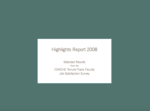
Abstract:
The Collaborative on Academic Careers in Higher Education provides academic leaders with peer data to monitor and improve work satisfaction among full-time, tenure-track faculty. More than 130 four-year colleges and universities have joined COACHE to enhance the quality of life for pre-tenure faculty and to enhance their ability to recruit, retain, and develop those faculty. The core element of COACHE is the Tenure-Track Faculty Job Satisfaction Survey. We now have job satisfaction data on over 8,000 pre-tenure faculty.
The COACHE Survey assesses faculty experiences in several areas: clarity and reasonableness of tenure processes and review; workload and support for teaching and research; importance and effectiveness of policies and practices; and climate, culture and collegiality on campus.
This COACHE Highlights Report complements the Institutional Report with an overview of results across all COACHE sites in the 2005-06, 2006-07, and 2007-08 cohorts. This year’s Report provides results disaggregated by race/ethnicity; by university control; and by gender.
Perspectives on What Pre-Tenure Faculty Want and What Six Research Universities Provide
Citation:
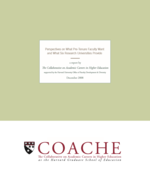
Abstract:
COACHE released this report in conjunction with the Harvard University Office for Faculty Diversity & Development. It is the result of many months of mining and synthesizing the information collected from nearly 80 interviews with pre-tenure and tenured faculty, department chairs, and senior administrators at six COACHE member campuses. Much of what is contained in this report may be all too familiar to an experienced academic administrator, but it is the first time the experiences of early-career faculty and the faculty development policies of top-tier research universities have been assembled in one place.Gender Differences in Faculty Member Job Satisfaction: Equity Forestalled?
Citation:

Abstract:
Guided by Hagedorn’s (2000) theory of faculty job satisfaction, mindful of social and organizational structures of higher education, and acknowledging recent changes in the academic labor market, this study examines satisfaction for approximately 30,000 tenured and tenure-track faculty members in 100 US colleges and universities. Findings revealed similarity between female and male faculty members in some aspects of work satisfaction, but difference in other areas in which women reported lower satisfaction. Findings also revealed that perceptions of department fit, recognition, work role balance, and mentoring are more important to women faculty’s satisfaction than male peers. These findings have implications for policy and practice.
Beyond Teaching and Research: Faculty Perceptions of Service Roles at Research Universities
Citation:

Abstract:
Faculty members in higher education institutions frequently have the responsibility of providing service activities to their institutions, professional societies, and external communities. This responsibility, however, generally carries little reward in the workplace and does not play a major role in promotion criteria. This study drew upon a sample of 4,400 research university faculty members surveyed through the Faculty Job Satisfaction Survey to explore their satisfaction with service roles by academic rank. Findings showed that mid-career faculty members at the associate professor rank were significantly less satisfied with their service functions, including workload, equity, work balance, recognition, and institutional support, when compared with both assistant and full professors.
Understanding the changing faculty workforce in higher education: A comparison of non-tenure track and tenure line experiences
Citation:

Abstract:
Non-tenure track faculty are a growing majority in American higher education, but research examining their work lives is limited. Moreover, the theoretical frameworks commonly used by scholars have been critiqued for reliance on ideologically charged assumptions. Using a conceptual model developed from Hackman and Oldham’s (1980) Job Characteristics Model (JCM) and prior research on faculty workplace experiences, this study considers the extent to which full-time non-tenure track and tenure line faculty share a professionalized approach to their jobs, working conditions, and how this is associated with their organizational commitment.
Satisfaction with resources, rewards, autonomy and feedback had a significant positive relationship with odds of organizational commitment for all faculty groups. Overall, the results suggest being removed from the tenure track is not associated with faculty viewing their jobs in a substantially different way than those in tenure line positions, which underscores the importance of conceptualizing full-time faculty work as an integrated whole.
Personal and Institutional Predictors of Work-Life Balance among Women and Men Faculty of Color
Citation:
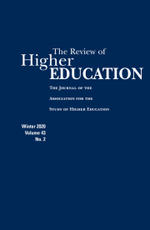
Abstract:
This study examines predictors of perceived work-life balance among women and men faculty of color using data from the Collaborative on Academic Careers in Higher Education (COACHE). Asian American men faculty report higher perceived work-life balance, while African American women faculty report lower perceived work-life balance as compared to other faculty members. Findings from multivariate analyses show that the strongest, most consistent positive predictor of perceived work-life balance was the faculty perception that the institution does what it can to make personal/family obligations and an academic career compatible. The findings offer important implications for institutional and departmental climate and policy.The possibility of promotion: How race and gender predict promotion clarity for associate professors
Citation:

Abstract:
Past studies have strongly suggested that equity issues affect advancement through the academic pipeline. This study uses cross-institutional results from the 2010 through 2012 Faculty Job Satisfaction Surveys to offer analysis and potential solutions for the problem.
The study asks whether cultural taxation in the form of heavy service and advising—often associated with underrepresented minority faculty and women faculty—is a factor in advancement through the academic pipeline, and also examines the influence of ideal-worker norms and work/family demands on perceptions of promotion clarity. The analysis suggests that the factors associated with lack of clarity about promotion are more structural than individual.
Gender and Race Differences in Faculty Assessment of Tenure Clarity: The Influence of Departmental Relationships and Practices
Citation:
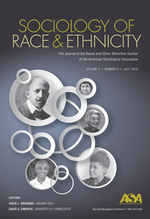
Abstract:
The authors look at how the intersection of gender and race influences pre-tenure faculty members’ perceptions of the clarity of tenure expectations. The authors also seek to identify potential predictors (assessment of mentoring, relationships with peers, feedback on progress toward tenure, and fairness in tenure decision making and evaluation) of perceptions of tenure clarity for four intersectionally defined groups, including historically underrepresented minority women (URMW). The authors use an intersectional perspective and the gendered and racialized organizations’ theoretical lens to interpret the results. The data set comes from the Faculty Job Satisfaction Survey. Findings show that compared with white men, URMW are less satisfied with their relationships with peers and with the fairness in the evaluation of their work. They are also less likely to agree that mentoring is effective, that tenure decisions are fair, and that messages about tenure are consistent.Browse Resources by Type
- Infographics
- Partner Case Studies
- Publications using COACHE data
- Statistical Reports
- Webinars
- Whitepapers
Recognizing Faculty with Disabilities: Data and Considerations from the Faculty Job Satisfaction Survey
Citation:
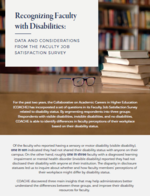
Abstract:
In 2019, COACHE added a series of questions about disability status to our flagship Faculty Job Satisfaction Survey. Two years of data were examined to understand how faculty's experience of the academic workplace might vary depending on their disability type and disclosure status. Review the infographic below to understand how attitudes and disclosure differ across types of disabilities and how administration can create inclusive policies to address these key insights. Click here for an accessible version of the document.Revealing Data on Faculty Retention & Departure
Citation:
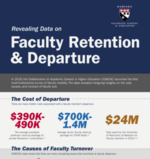
Abstract:
In 2017, after a successful pilot with several campuses of a large public university system, COACHE launched the Faculty Retention and Exit Survey nationwide. This study represents the first multi-institutional survey of faculty retentions (among those with outside offers) and departures. Until now, there was no coordinated effort for universities to develop a common understanding of the causes, costs, and conduct of faculty mobility.
Among the takeaways: More than half of faculty ranked salary as a secondary factor or not a factor in their decision to stay or leave. But 67% selected quality of colleagues as a compelling factor. The study also found that faculty are expected to cultivate outside offers before they can ask for a better deal at home, and that this requirement pushes them out the door: nearly 1 in 3 faculty who left originally sought the offer only to renegotiate the terms of their employment.
Full Text

Using the Faculty Job Satisfaction Survey to Improve Equity for Texas Tech Faculty
Citation:
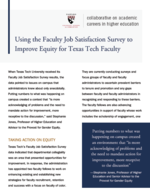
Abstract:
Upon receiving their Faculty Job Satisfaction Survey results, Texas Tech University set to work addressing some of the equity gaps brought to light. Among their priorities was departmental collegiality, diversity and equity across divisions, and department chair training. By creating two faculty fellow positions and a team Faculty Equity Advocates, Texas Tech is set to make meaningful changes on their campus.Tailoring a Survey for Campus Change at the University of Denver
Citation:
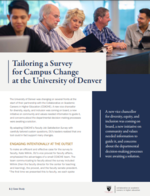
Abstract:
The University of Denver was changing on several fronts at the start of their partnership with the Collaborative on Academic Careers in Higher Education (COACHE). A new vice chancellor for diversity, equity, and inclusion was coming on board, a new initiative on community and values needed information to guide it, and concerns about the departmental decision-making processes were awaiting a solution.
By adapting COACHE’s Faculty Job Satisfaction Survey with carefully tailored custom questions, DU’s leaders realized that one tool could in fact support many changes.
Building Trust, Engaging Faculty, Taking Action: Supporting the Next Generation of Faculty at Georgia State University
Citation:
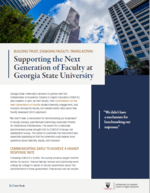
Abstract:
Georgia State University decided to partner with COACHE after the university’s Commission on the Next Generation of Faculty urged the institution to gather more robust data on diversity, equity, and inclusion on campus. The provost’s office made three guarantees to faculty about the Faculty Job Satisfaction Survey: the administration wanted to hear from every full-time faculty member, they would not receive data that would allow them to identify any individual faculty member, and they would use the results for campus improvement. This transparancy has already borne fruit. With a higher response rate than peer institutions and a renewed sense of trust, GSU administrators are moving forward in unpacking the results collaboratively with their faculty.- 1 of 2
- »
The Art of Diversity: A Chronicle of Advancing the University of California Faculty through Efforts in Diversity, Equity, and Inclusion, 2010–2022
Citation:
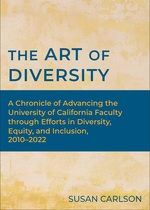
Abstract:
In The Art of Diversity: A Chronicle of Advancing the University of California Faculty through Efforts in Diversity, Equity, and Inclusion, 2010–2022, Susan Carlson details the University of California’s systemwide efforts to increase the diversity of its faculty during her tenure as Vice Provost, UC Office of the President. It tells the story of a remarkable alignment of California stakeholders—from the UC Regents and University leaders to the Academic Senate and the California legislature, from small faculty teams to multicampus coalitions—and how they worked to create a 21st-century faculty that reflects the diversity of California. This chronicle’s central focus is on a community of practice dedicated to excellence and equity. Efforts began with a program focused on finding new ways to collect data on faculty recruitment and create multicampus discussions on key topics like mentoring, intersectional racial and gender identities, workplace climate, and statements on diversity, equity, and inclusion. These efforts continued with a novel interactive theater program for department chairs and deans. The capstone effort, Advancing Faculty Diversity, provides opportunities to pilot new ways to recruit and sustain inclusive and equitable academic communities.
Carlson addresses this central academic issue: how to build a faculty that is different from the past not only in its gender and racial makeup, but also in its research methodologies, transdisciplinary partnerships, and multimodal pedagogies.
Job Satisfaction Among Nursing Faculty in Canada and the United States
Citation:
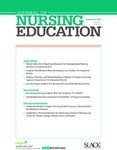
Abstract:
Higher education wants a satisfied workforce to ensure the organization reaches their stated or evolving goals; however, if faculty are dissatisfied, there can be harmful and long-term consequences on productivity and organizational outcome. This study examined nursing faculty's job satisfaction and intent to stay in universities in the United States and Canada.Cross-cultural mentoring in higher education: the use of a cultural identity development model
Citation:
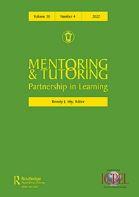
Abstract:
This article examines the role that cultural identity development plays in understanding cross-cultural mentoring encounters between White faculty and faculty of color. The authors present the components of a conceptual framework for developing mentoring approaches that consider a person’s cultural identity stage of development. Using a systematic approach, the authors consider the fundamental principles of cultural identity development theory combined with higher education contextual conditions, resulting in an approach by which mentors and protégés could govern their interactions. The article concludes with implications for mentoring program administrators, faculty, and leaders in higher education.- 1 of 18
- »
COVID-19 Impact Study: Technical Report
Citation:
Abstract:
The findings from a series of statistical analyses present compelling evidence that the disruption to campus operations caused by the coronavirus (COVID-19) in March 2020 impacted faculty perceptions of some aspects of their campus environment. This impact was felt across all institutions that participated in the COACHE Faculty Job Satisfaction Survey (JSAT) for a subset of JSAT benchmarks and specific items. At the same time, some benchmarks and most items were unaffected. The majority of the benchmarks and items that were impacted concerned leadership, governance, and decision-making. Additional analyses of the differences between benchmark scores with and without the presence of post-disruption responses suggest that the degree of change with the inclusion of post-disruption responses is negligible in practical application and does not warrant additional data cleaning for valid interpretation of report findings.Selected Dimensions of the Faculty Workplace Experience
Citation:
Abstract:
In conjunction with the AAC&U Annual Meeting, COACHE is providing access to digital spreadsheets summarizing results from its Faculty Job Satisfaction Survey, including responses from approximately 43,000 faculty at 2- and 4-year colleges and universities. COACHE Summary Tables 2019 provides responses organized by major Carnegie Classification and disciplinary groups, then by faculty rank (and tenure status), race/ethnicity, or gender. The following tables were extracted from COACHE Summary Tables 2019 for use in our discussion.COACHE Summary Tables 2019: Selected Dimensions of the Faculty Workplace Experience
Citation:
Abstract:
These summary tables include data from the 2019 Faculty Job Satisfaction Survey, focusing on the faculty workplace experience, with data presented by institution type, discipline, rank (with tenure status), race/ethnicity, and gender. Survey dimensions shown in the summary tables include questions about the nature of faculty work, facilities and family resources, interdisciplinary work, tenure clarity, promotion, and shared governance.Full Text
Access the 2019 summary tables
- 1 of 3
- »
Examining the Impacts of COVID-19 on Faculty Retention & Exit
Citation:
Abstract:
For the last five years, the Collaborative on Academic Careers in Higher Education (COACHE) has been conducting the Faculty Retention and Exit Survey to gain a deeper understanding of the academic work environment by examining faculty mobility. In spring 2020, we added three COVID-19-related questions to the survey to capture the early effects of the pandemic.
In this webinar, Doctoral Fellow, Mai H. Vang, presents findings from the responses to those questions, which captured nine themes, including disruption of research, disconnection due to remote work, and inequities in the pandemic’s impact on particular faculty.
Download the full report of our findings and presentation slides
Full Text
Assessing the Needs of Part-Time Faculty: Lessons Learned from the University at Buffalo
Citation:
Abstract:
According to the American Association of University Professors (AAUP), approximately 40% of all faculty across all institutional types are now part-time. This subset of adjunct faculty is fulfilling a critical role in the higher education landscape, yet the variability of these appointments makes it exceedingly difficult to assess their needs and, ultimately, provide adequate support.
In 2017, COACHE partners at the University at Buffalo set out to address this knowledge gap by adapting the Faculty Job Satisfaction Survey to suit the needs of their part-time faculty. In this webinar, Robert Granfield and Tilman Baumstark will share the challenges faced and lessons learned, both from their methodology and from their faculty, throughout this endeavor.
Success After Tenure: Lessons in Engaging Midcareer Faculty
Citation:
Abstract:
Mid-career faculty actively seek professional satisfaction and personal well-being in their careers at the departmental and institutional level. However, a growing body of research tells us that the policies and practices in place at colleges and universities do not always support this goal. This webinar, “Success After Tenure: Lessons in Engaging Mid-Career Faculty,” offers an inside take on the themes of the book Success After Tenure: Supporting Mid-Career Faculty and provide real-world best practices from practitioners in the field.
Full Text
Watch the Recording
Download the presentation slides
- 1 of 2
- »
Faculty Departure and Retention at Small Liberal Arts Colleges
Citation:
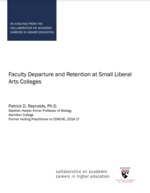
Abstract:
Voluntary faculty departures can often be prevented, but a lack of common exit procedures have hindered institutions’ ability to create proactive practices of faculty retention and instead harbor reactive tendencies with little positive outcome. Through interviews with 22 CAOs at liberal arts colleges, Patrick D. Reynolds, former Visiting Practitioner to COACHE, discovered partner employment and career choice were the two most prominent reasons for departures. Outliers also revealed that work and social environments, especially for faculty members of minority groups, often played a role in dissatisfaction.
Effective Academic Governance: Five Ingredients for CAOs and Faculty
Citation:
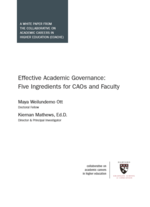
Abstract:
The COACHE research-practice partnership is designed to enact organizational change for the benefit of faculty and, by extension, the institution. But does every college's system of shared governance have what it takes to meet their own or, indeed, higher education’s most pressing challenges? This white paper looks beyond the rhetoric toward a more differentiated understanding of the ingredients of effective academic governance. Ott and Mathews offer a five-factor framework grounded in the literature, developed from interviews, and, now, tested in a survey of thousands of faculty. The report concludes with advice for assessing and fostering the qualities of “hard” and “soft” governance practices essential to sustainable change in the “real world” decision-making of committees, assemblies, senates, councils, and unions.Benchmark Best Practices: Tenure and Promotion
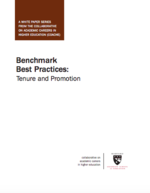
Abstract:
The COACHE surveys of college faculty produce data that are both salient to full-time college faculty and actionable by academic leaders. The survey items are aggregated into 20 benchmarks representing the general thrust of faculty satisfaction along key themes. This white paper discusses the themes of tenure policies, tenure clarity, and promotion.
Administrators and faculty alike acknowledge that, at most institutions, the bar to achieve tenure has risen over time. While it is impossible to eliminate anxiety from the minds of all pre-tenure faculty members, or the pressures exerted on their lives en route to tenure, academic leaders can improve the clarity of tenure policies and expectations without sacrificing rigor. And while the academy has recently improved many policies for assistant professors (e.g., research leave; stop-the-tenure-clock; part-time tenure-track options), it has done far less for associate professors. Ideas have emerged from COACHE research on tenured faculty.
- 1 of 5
- »

